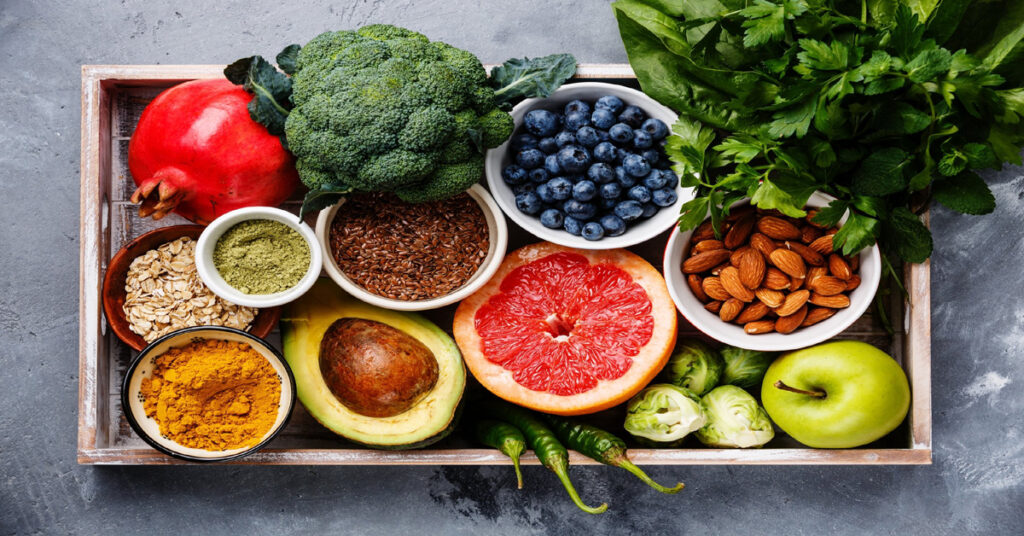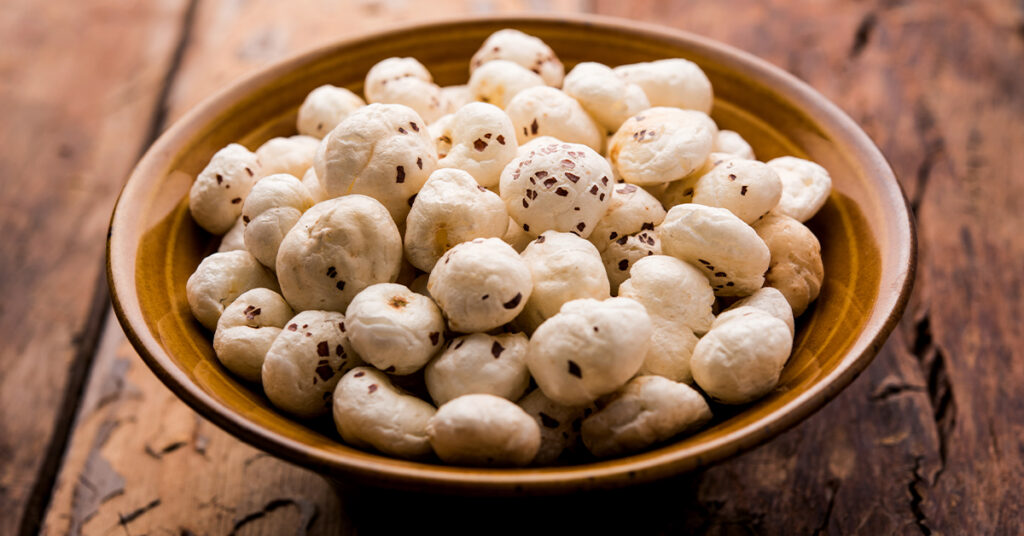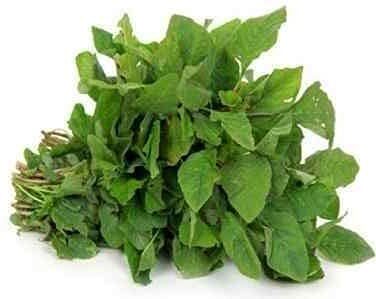Healthy bodies come in all shapes and sizes. There are some fundamental guidelines that apply when you’re attempting to lose weight, regardless of whether you find that a low-carb diet or a diet that emphasises whole foods helps you achieve your weight loss goals. Here are several weight-loss strategies supported by science that emphasise sensible carbohydrate selection and healthy eating. Decreasing hunger and appetite while keeping you full produce long-term, sustainable weight loss assist in enhancing your metabolic health concurrently. Some of these suggestions may be useful if you want to lose weight rapidly, but rapid weight loss is rarely long-lasting. It will help you improve your health and increase the likelihood that you will lose weight permanently if you concentrate on long-term health and behaviours you can maintain.
1. Whole eggs
Eggs are very nutrient-dense foods. Interestingly, although while egg whites contain 4 to 6 grams of protein, practically all of its nutrients, including choline and vitamin D, are located in the yolks.
High in fat and protein. Your ability to lose weight can be aided by developing the habit of eating when you’re hungry and quitting when you’re full. If you’re trying to lose weight or keep it off, one of the finest things to eat is eggs.
2. Leafy greens
Leafy greens include kale, spinach, collard greens, Swiss chard, and a few others.They have several properties that make them perfect for reaching or maintaining a healthy weight.
In the meantime, leafy greens boast an assortment of fiber and micronutrients and are almost always a great addition to your diet. Adding leafy greens to your diet can help you feel satiated and reduce cravings for less nutritious foods. Learning to respond to your body’s internal cues of hunger and fullness can aid your larger healthy weight loss goals.Leafy greens are high in vitamin K, which may interact with your medication. Consistent vitamin K intake is key.
3. Salmon
Fatty fish like salmon are incredibly nutritious. Salmon is loaded with high quality protein, healthy fats, and various important nutrients. That combination keeps you satiated and can help you reach a healthier weight.
Salmon is loaded with omega-3 fatty acids, which may help reduce inflammation. Inflammation plays a major role in obesity and metabolic disease, Fish and seafood, in general may also supply a significant amount of iodine. The nutrient is necessary for proper thyroid function, which is important to keep your metabolism running optimally.
Adding fatty fish to your diet can help you consume enough iodine. Mackerel, trout, sardines, herring, tuna, and other types of fatty fish are also excellent for your health.
4. Cruciferous vegetables
Broccoli, cauliflower, cabbage, and Brussels sprouts are cruciferous vegetables. These vegetables have a reasonable quantity of protein. Even though they are not nearly as high in protein as meat or beans, they are nonetheless high for vegetables.
Cruciferous vegetables are the ideal foods to include in your meals if you want to lose weight since they have a high protein content, plenty of fibre, and low energy density (low calorie content). They also include nutrients that may reduce your risk of developing cancer and are very healthy.
5. Chicken breast and some lean meats
Consuming fruits, vegetables, and whole grains combined with unprocessed meat in moderation (i.e., 2-3 servings per week) may help reduce some of the cancer risks connected with meat consumption. In terms of nutrition, chicken and red meat both include a lot of protein and iron. Lean red meat cuts like tenderloin or flank steak that are skinless and packed with protein and iron have less saturated fat than other cuts.
6. Potatoes and other root vegetables
White potatoes appear to be losing popularity, probably at least in part as a result of the popularity of lower-carb diets. For what it’s worth, potatoes and other root vegetables have a number of benefits that make them excellent sources of nutrients for promoting healthy weight loss.
They include a tiny bit of practically every nutrient you require and a remarkably wide variety of nutrients. They are especially rich in potassium, a vitamin that is typically under-consumed. In the control of blood pressure, potassium is crucial. Boiling white potatoes had the highest rating of any food tested on a scale called the Satiety Index that gauges how full various foods are. Other wonderful options include sweet potatoes, turnips, and other root vegetables.
7. Tuna
Tuna is another satiating high protein food. It’s a lean fish, meaning it has protein, which helps keep you full, as well as healthy fats. Among these healthy fats is docosahexaenoic acid(DHA),a form of omega-3 fatty acid, which may benefit your heart.
Eating fish like salmon and tuna can be a great way to increase your protein intake, with nutritious fish fats to support your eyes and brain. Tuna packed in oil ups the calories, fat, and sodium, but could be more filling. It decrease your weight loss.
8. Beans and legumes
Legumes like beans and other legumes can help you lose weight. Lentils, black beans, kidney beans, and various other beans are examples of them.
Those foods frequently have significant levels of protein and fibre, two nutrients that encourage satiety. Beans might make some people feel bloated and gassy because of their high fibre content. However, careful preparation can lessen these negative effects. Consider purchasing dried beans and soaking them for several hours prior to cooking.
9. Soups
Soup takes some people longer to eat than other foods because of the slurping, smelling, tasting, cooling, and chewing. Eating slowly may assist you in eating more mindfully. Blend in avocado or cashews to increase the fibre content of your soup. You can also garnish the soup with avocado slices.
Soups may promote fullness and aid in weight management because they are inherently liquids and thus hydrate you. Including a vegetable-based clear soup before your meal can help you feel more satisfied and lose weight in a healthy way.
10. Avocados
Avocados are a one-of-a-kind fruit. While most fruits are high in carbohydrates, avocados are high in healthy fats. They contain a lot of monounsaturated oleic acid, which is the same type of fat found in olive oil.
Despite being mostly fat, avocados are also high in water and fibre, making them extremely filling. Avocados contain a variety of nutrients, including fibre and potassium. It’s important to remember that avocados are high in energy, so portion control is essential if you’re trying to lose weight.
11. Nuts
Nuts are a very popular food. They’re tasty, convenient, and can be enjoyed on all kinds of diets — from keto to vegan. Despite being high in fat, they have a number of impressive health and weight benefits. Nuts are seed kernels that are widely used in cooking or eaten on their own as a snack. They’re high in fat and calories. Here are some of the most commonly consumed nuts: Almonds, Brazil nuts, Cashews, Hazelnuts, Macadamia nuts, Pecans, Pine nuts, Pistachios, Walnuts.
12. Whole grains
Grains, such as oats, brown rice, and quinoa, can be beneficial to your diet and metabolic health because they are high in fibre and protein. Oats are high in beta-glucans, which are soluble fibres that may help with metabolic health. While both brown and white rice can contain significant amounts of resistant starch, brown rice contains additional nutrients, particularly fibre, that may support your healthy weight loss journey.
13. Chilli pepper
Eating chilli peppers may help you lose weight. They contain capsaicin, a compound that gives hot peppers like chilis their spiciness. These may help you on your way to a healthy weight loss. The substance is even available as a supplement and is found in many commercial weight loss supplements.
14. Fruit
Most fruits contain properties that help you achieve or maintain a healthy weight. Despite the fact that fruits contain natural sugar, they have a low energy density and are high in micronutrients. Furthermore, their fibre content prevents sugar from being released too quickly into your bloodstream. The majority of fruits can be effective and tasty additions to your healthy weight loss journey.
15. Grapefruit
Grapefruit is high in fibre and nutrients and can help you feel full. In a previous study from 2006 that followed 91 obese people for 12 weeks, eating half a fresh grapefruit before meals resulted in a 3.5-pound weight loss (1.6 kg). In addition, the grapefruit group had lower insulin resistance, a metabolic condition. As a result, eating half a grapefruit about half an hour before meals may help you feel more satiated and consume fewer calories overall.
16. Greek yogurt
Despite its high protein content, eating Greek yoghurt alone is unlikely to increase calorie burn. However, eating Greek yoghurt as part of a well-balanced diet rich in protein, fibre, and healthy fats may help with weight loss and metabolism.
Many foods are delicious, nutritious, and beneficial to your efforts to lose or maintain a healthy weight. These primarily consist of whole foods such as fish, lean meat, vegetables, fruit, nuts, seeds, and legumes. Some minimally processed foods to consider include probiotic yoghurt and oatmeal. Eating these nutritious foods, along with moderation and regular exercise, should help pave the way to a healthy life.




